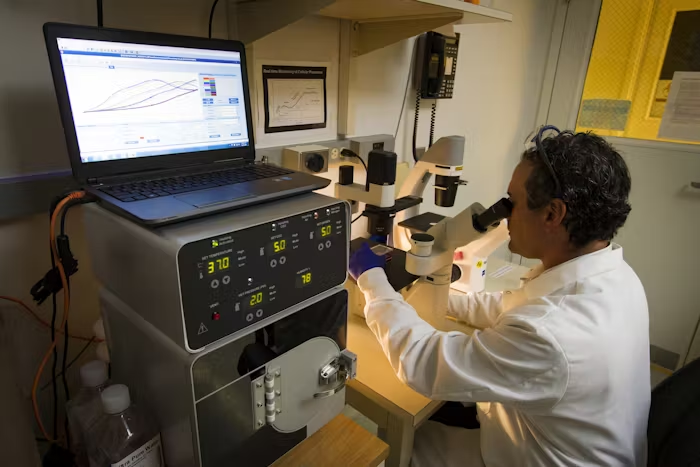In today’s fast-paced and ever-evolving professional landscape, adaptability has become a cornerstone of success. Whether it’s navigating technological advancements, embracing organizational changes, or managing diverse teams, being adaptable is not just a desirable trait — it’s an essential one.
This article delves into the importance of adaptability at work, the skills you need to succeed, and actionable strategies for developing this vital quality. By understanding how adaptability enhances your career and contributes to workplace success, you can position yourself as a resilient and valuable asset in any organization.
What is Adaptability in the Workplace?
Adaptability at work refers to your ability to adjust to changes in your environment, roles, or responsibilities without compromising your productivity or well-being. It encompasses a mindset that embraces flexibility, openness to learning, and resilience in the face of uncertainty.

Why is Adaptability Important?
- Constant Change: Industries are transforming rapidly due to technology, globalization, and shifting market demands.
- Career Growth: Employers value individuals who can pivot and thrive amidst challenges.
- Enhanced Teamwork: Adaptable employees collaborate better and foster a positive work environment.
The Skills that Make Adaptability at Work Possible
To succeed in adapting at work, you need a combination of cognitive, emotional, and practical skills. Here are the key traits and abilities that define an adaptable professional:
1. Emotional Intelligence
Understanding and managing your emotions, as well as empathizing with others, is crucial for navigating workplace changes.
2. Problem-Solving Skills
Adaptable individuals think critically and creatively to overcome obstacles.
3. Resilience
The ability to bounce back from setbacks ensures you stay motivated during challenging times.
4. Open-Mindedness
Being open to new ideas, perspectives, and feedback fosters innovation and personal growth.
5. Learning Agility
An eagerness to acquire new knowledge and skills helps you stay relevant in your career.
The Benefits of Adaptability at Work
1. Improved Productivity
Adapting at work allows you to tackle challenges efficiently, maintaining high levels of productivity even in stressful situations.
2. Career Advancement
Employers seek adaptable professionals who can lead through change, making this skill a pathway to promotions and leadership roles.
3. Stronger Relationships
Being flexible in your interactions with colleagues and managers fosters trust and collaboration.
4. Enhanced Job Satisfaction
Adaptable employees often experience greater fulfillment as they view changes as opportunities rather than threats.
5. Long-Term Success
In a world where the only constant is change, adaptability ensures you remain competitive and relevant throughout your career.
How to Develop Adaptability Skills at Work
Building adaptability is a journey that requires intentional effort. Here are practical steps to cultivate this skill and excel in your professional environment:
1. Embrace a Growth Mindset
Believing in your ability to learn and grow is the foundation of adaptability.
Action Steps
- View challenges as opportunities for growth.
- Reflect on past experiences where you successfully adapted.
- Reframe negative thoughts into positive, solution-focused ones.
2. Stay Informed and Updated
Knowledge is power, especially when adapting to industry trends or technological advancements.
How to Stay Updated
- Attend workshops and webinars related to your field.
- Follow industry news and updates.
- Take online courses to acquire new skills.
3. Develop Strong Communication Skills
Effective communication is vital for navigating changes and collaborating with others.
Tips for Better Communication
- Listen actively to understand different perspectives.
- Practice clear and concise messaging.
- Seek feedback to improve your communication style.
4. Build Resilience
Resilience helps you manage stress and maintain focus during uncertain times.
Ways to Enhance Resilience
- Practice mindfulness and stress management techniques.
- Maintain a healthy work-life balance.
- Set realistic goals and celebrate small victories.
5. Foster Collaboration
Teamwork plays a significant role in adapting to organizational changes.
How to Collaborate Effectively
- Be open to others’ ideas and feedback.
- Offer support to teammates during transitions.
- Adapt your working style to complement your team’s dynamics.
6. Practice Flexibility
Flexibility involves adjusting your approach to align with changing priorities or circumstances.
Examples of Flexibility
- Taking on new roles or responsibilities when needed.
- Adopting new technologies or processes without hesitation.
- Being willing to revise plans to meet evolving goals.
7. Cultivate Curiosity
A curious mindset drives innovation and helps you embrace change enthusiastically.
How to Stay Curious
- Ask questions and seek clarification when faced with new information.
- Experiment with different ways of completing tasks.
- Explore interests outside of your immediate role or field.
Common Challenges in Adapting at Work and How to Overcome Them
While adaptability is essential, it’s not without challenges. Here’s how to address some common obstacles:
1. Fear of Failure
Change often brings uncertainty, leading to fear of making mistakes.
- Solution: Focus on learning from mistakes rather than avoiding them.
2. Resistance to Change
Employees may feel attached to existing routines or methods.
- Solution: Highlight the benefits of change and involve teams in decision-making processes.
3. Lack of Skills
Adapting at work sometimes requires new competencies.
- Solution: Invest in training and professional development.
Real-Life Examples of Adaptability in Action
1. Adapting to Remote Work
The COVID-19 pandemic forced millions of employees to transition to remote work overnight. Those who adapted quickly by mastering virtual collaboration tools and maintaining productivity thrived despite the challenges.
2. Embracing Technology
Companies that adopted automation and AI technologies have seen significant efficiency gains. Employees who embraced these tools became invaluable contributors to their organizations.
3. Navigating Industry Shifts
The retail sector has undergone massive changes with the rise of e-commerce. Adaptable professionals have pivoted to roles in digital marketing and online sales to stay relevant.
Adaptability and Leadership: A Crucial Connection
Adaptability isn’t just for employees; it’s a defining trait of great leaders.
Why Leaders Need Adaptability
- Inspiring Teams: Adaptable leaders motivate their teams to embrace change.
- Decision-Making: Flexibility allows leaders to make informed choices in uncertain scenarios.
- Crisis Management: Effective leaders navigate crises with composure and strategic thinking.
The Role of Adaptability in Organizational Success
1. Innovation
Organizations that encourage adaptability foster a culture of innovation, driving growth and competitiveness.
2. Employee Engagement
Adaptable workplaces empower employees, increasing satisfaction and retention.
3. Client Satisfaction
Being responsive to client needs and market trends enhances customer loyalty and trust.
Measuring and Improving Workplace Adaptability
Key Performance Indicators (KPIs)
- Employee Feedback: Regular surveys to gauge comfort with change.
- Performance Metrics: Tracking productivity during transitions.
- Innovation Rates: Assessing the success of new initiatives.
Improvement Strategies
- Implement flexible policies that encourage experimentation.
- Provide resources for skill development and continuous learning.
- Recognize and reward adaptability in employees.
The Future of Work and Adaptability
As the future of work evolves, adaptability will only become more critical. Emerging trends like remote work, AI integration, and gig economy roles demand a workforce that can thrive amid constant change.
How to Stay Ahead
- Embrace lifelong learning to keep up with industry developments.
- Build networks that provide diverse perspectives and support.
- Stay proactive in seeking opportunities for growth and innovation.
In an unpredictable world, adaptability is not just a skill — it’s a mindset that empowers you to thrive in any professional setting. By embracing change, building resilience, and continuously developing your skills, you can excel in your career and make a lasting impact on your organization.
Remember, adaptability is the bridge between challenges and opportunities. Take the first step today to unlock your potential and achieve long-term success in the workplace.














